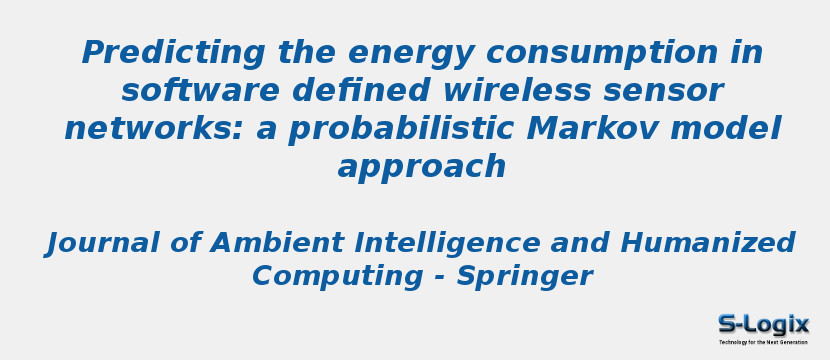Research Area: Internet of Things
The smart world is connecting all universe more than ever thought possible, benefiting from the significant advances of the Internet of Things (IoT) applications using wireless sensor networks (WSN) as the core technology. A challenging issue in the IoT paradigm is the heterogeneity in different parts of the network. The network developers need to use resources belonging to different platforms for their applications, and the software defined network (SDN) approach is a mainly considered solution. In this paper, a software defined wireless sensor network (SDWSN) with an energy predictor model (SDWSN-EPM) based on the Markov probabilistic model is proposed to reduce the energy consumption and the network latency. The energy consumption rate (ECR) of the sensor nodes is modeled using the Markov model and the states of the sensor nodes. The ECR is used by the SDN controller to predict the residual energy level of the nodes and consequently, the energy consumption of the network. The cumulative distribution functions (CDF) of the delay, power consumption, and the network lifetime in both SDWSN and SDWSN-EPM schemes are compared. The results confirm that the SDWSN-EPM model significantly improves the performance of the sensor networks.
Keywords:
Author(s) Name: Atefeh Rahimifar,Yousef Seifi Kavian,Hooman Kaabi,Mohammad Soroosh.
Journal name: Journal of Ambient Intelligence and Humanized Computing
Conferrence name:
Publisher name: Springer
DOI: 10.1007/s12652-020-02599-3
Volume Information: volume 12, pages 9053–9066 (2021)
